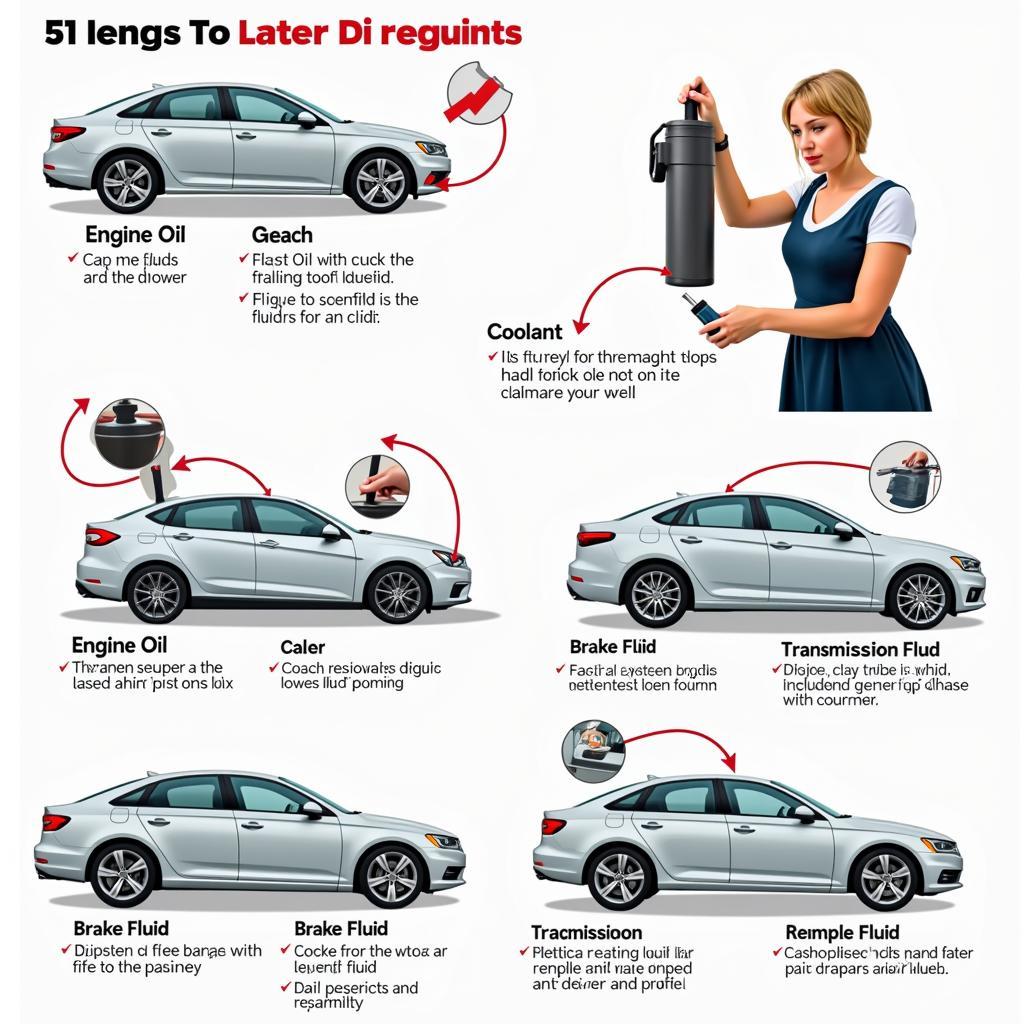Driverless cars, also known as autonomous vehicles, promise a future of safer and more efficient transportation. However, despite the advancements, several key problems with driverless cars still need to be addressed before they become a ubiquitous reality. These challenges range from technical limitations to ethical dilemmas and legal uncertainties.
driverless cars aren’t going to solve problems
Technical Hurdles for Autonomous Vehicles
One major issue is the ability of driverless cars to operate reliably in all weather conditions. Heavy rain, snow, and fog can interfere with the sensors and algorithms that allow these vehicles to perceive their surroundings. This can lead to unpredictable behavior or even complete system failure. Additionally, current driverless car technology struggles with navigating complex road scenarios, such as construction zones or areas with unclear lane markings.
 Driverless Car Navigating Snowy Conditions
Driverless Car Navigating Snowy Conditions
Ethical Quandaries of Autonomous Driving
What will driverless cars do in a trolley problem? This classic philosophical thought experiment raises crucial ethical questions about the decision-making process of autonomous vehicles in unavoidable accident scenarios. Who should the car prioritize: the occupants or pedestrians? Programming ethical algorithms into driverless cars presents a significant challenge, as moral judgments are subjective and context-dependent.
Legal and Regulatory Challenges for Driverless Cars
Legal problems with driverless cars are numerous. Current legal frameworks are primarily designed for human drivers, making it difficult to assign liability in accidents involving autonomous vehicles. Questions arise about who is responsible: the owner, the manufacturer, or the software developer? Establishing clear legal guidelines is essential for the widespread adoption of driverless technology. What problems would driverless cars solve? Perhaps this is something we can consider when discussing the legal implications.
what problems would driverless cars solve
Cybersecurity Risks and Autonomous Vehicles
Another significant concern is the vulnerability of driverless cars to hacking and cyberattacks. A compromised system could lead to disastrous consequences, ranging from data breaches to malicious control of the vehicle itself. Ensuring the cybersecurity of these complex systems is a paramount concern for developers and regulators.
Public Perception and Acceptance of Driverless Technology
Despite the potential benefits, public trust in driverless cars remains a significant hurdle. Many people are hesitant to relinquish control to a machine, particularly given the potential for malfunctions or unforeseen circumstances. Building public confidence through transparent testing and communication is vital for the successful integration of driverless cars into society. Problems with google driverless cars have contributed to this public perception challenge.
problems with google driverless cars
The Infrastructure Challenge for Autonomous Vehicles
Driverless cars require a sophisticated infrastructure to function optimally. This includes well-maintained roads, accurate mapping data, and reliable communication networks. Adapting existing infrastructure to accommodate the needs of autonomous vehicles will require significant investment and coordination.
“The development of robust and secure communication networks is crucial for the future of autonomous driving,” says Dr. Eleanor Vance, a leading expert in automotive cybersecurity.
The Cost of Driverless Technology
Currently, driverless car technology is expensive, making it inaccessible to the average consumer. As the technology matures and economies of scale are achieved, prices are expected to decrease. However, the initial investment cost remains a barrier to widespread adoption.
“The transition to a driverless future requires careful consideration of the economic implications for consumers,” notes Dr. Michael Carter, an automotive industry analyst.
Conclusion
While the promise of driverless cars is enticing, several problems with driverless cars need to be addressed before they become a mainstream mode of transportation. From technical challenges to ethical dilemmas and legal uncertainties, overcoming these obstacles will require ongoing research, development, and collaboration between industry stakeholders, policymakers, and the public. For assistance or further inquiries, please connect with AutoTipPro at +1 (641) 206-8880 or visit our office at 500 N St Mary’s St, San Antonio, TX 78205, United States.
legal problems with driverless cars
“Ultimately, the success of driverless cars depends on building trust and ensuring safety,” adds Dr. Vance.





Leave a Reply